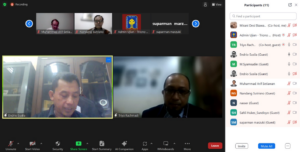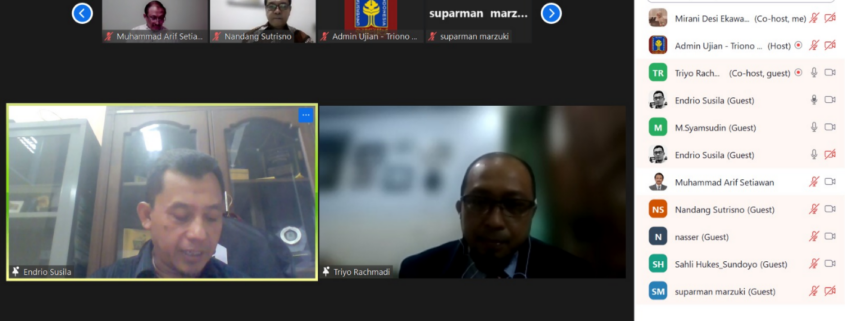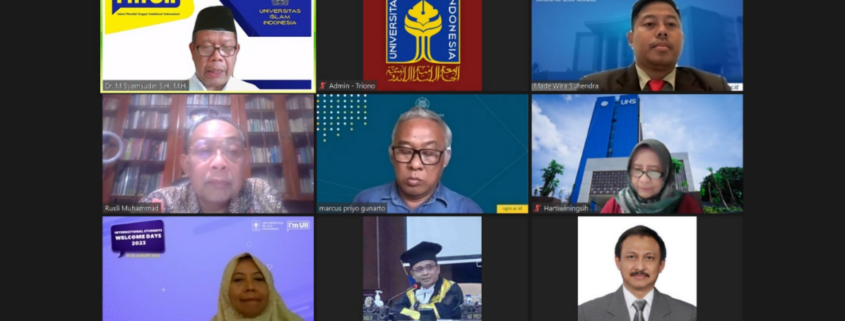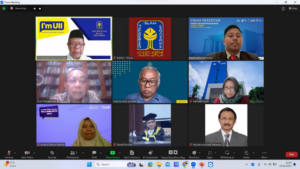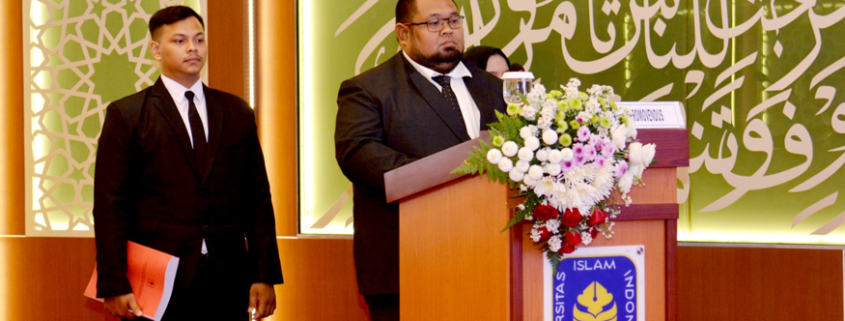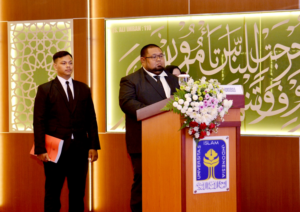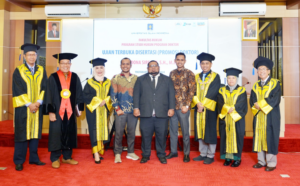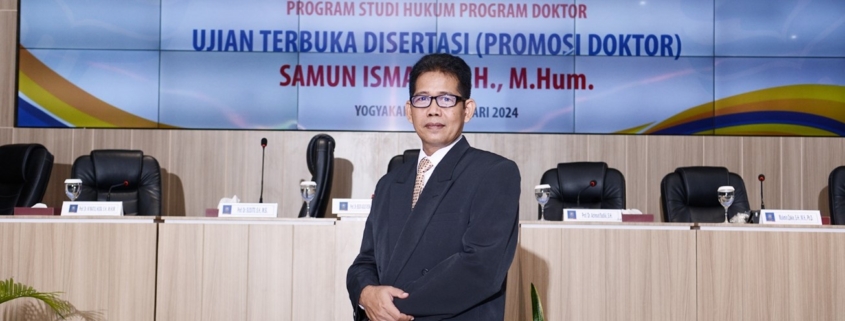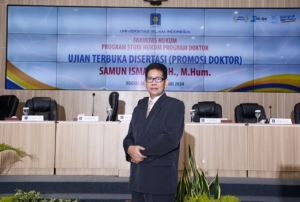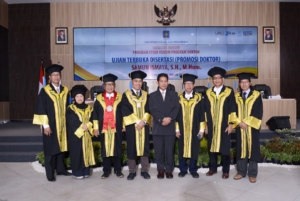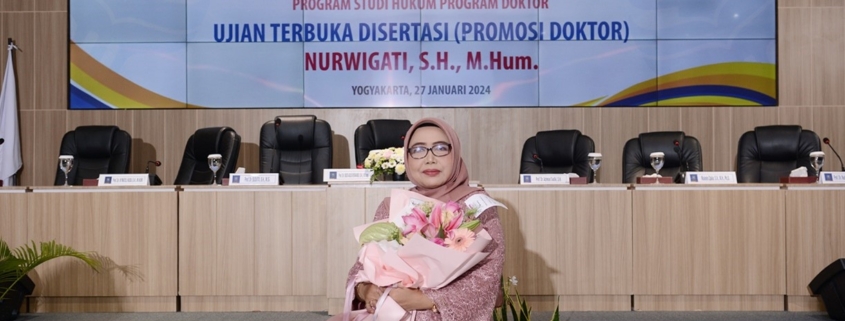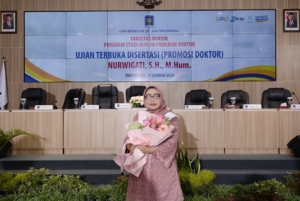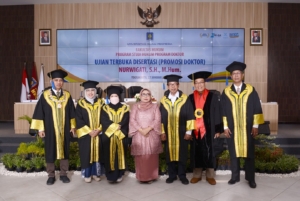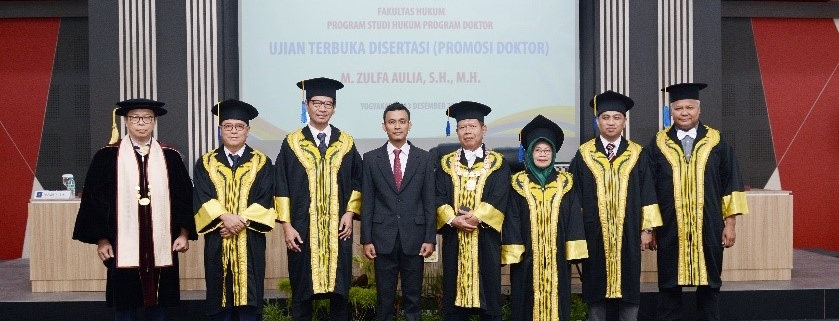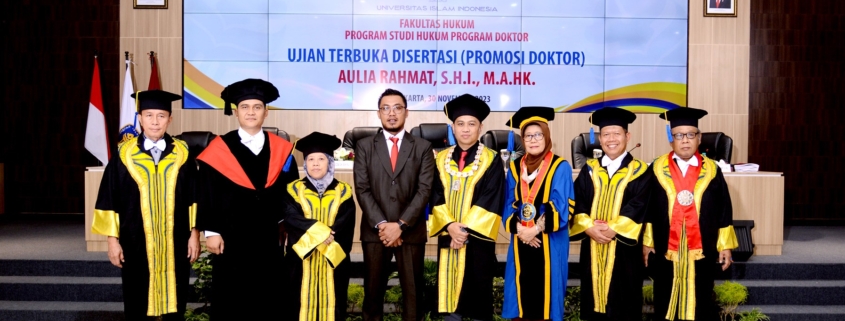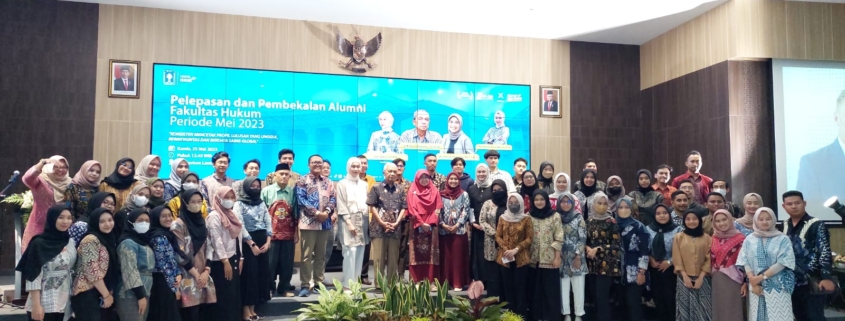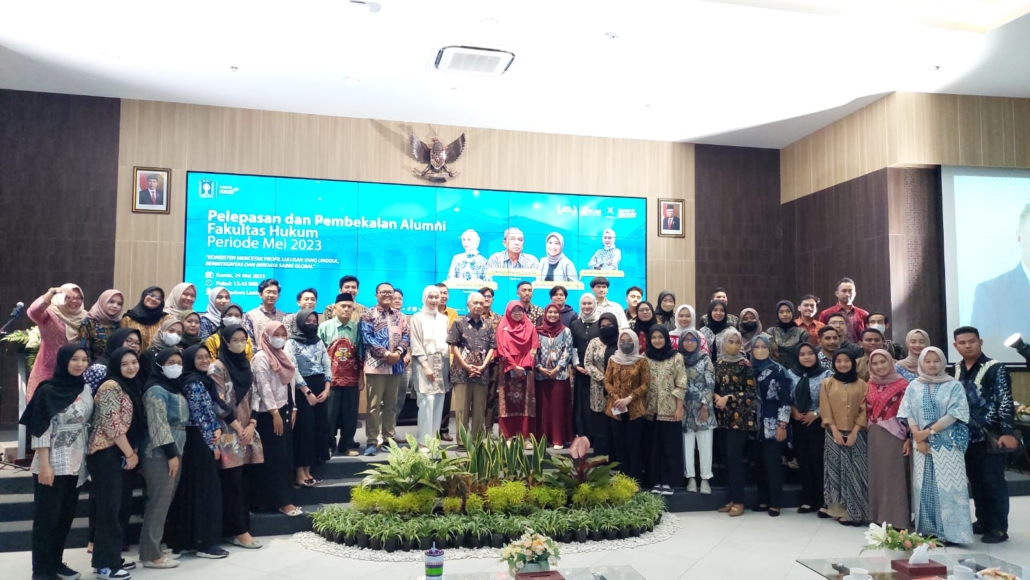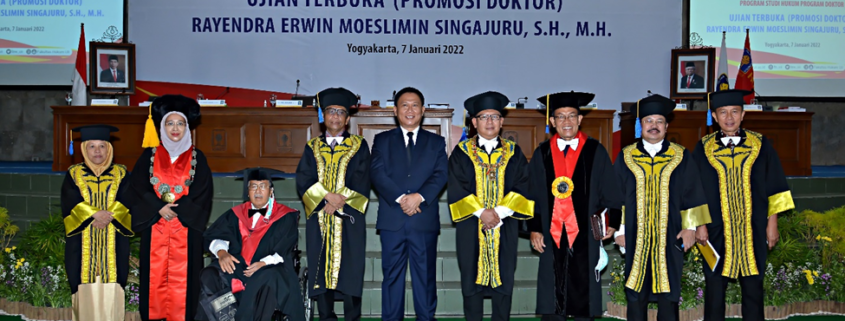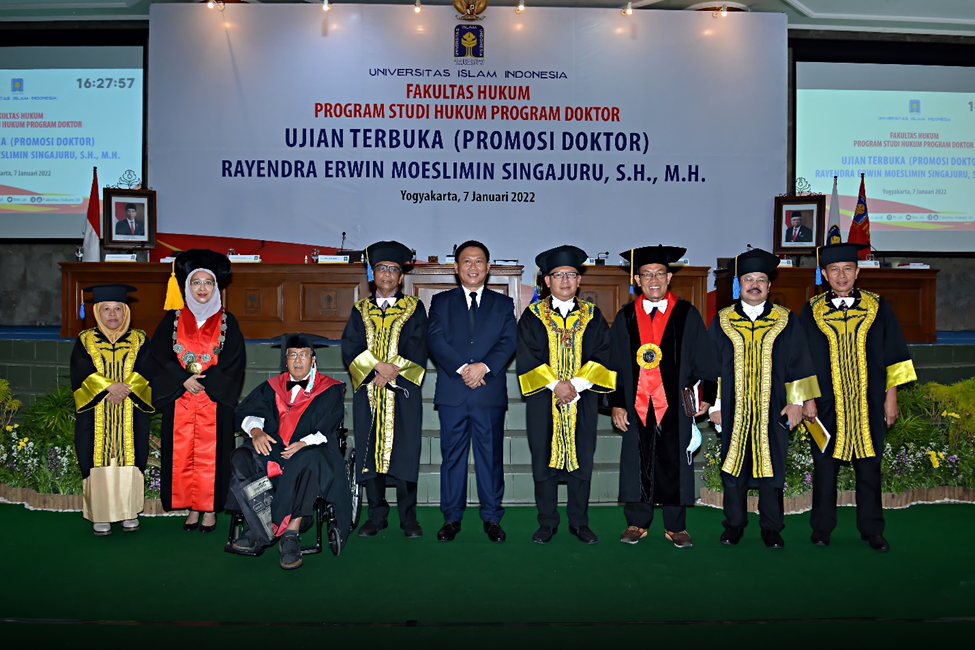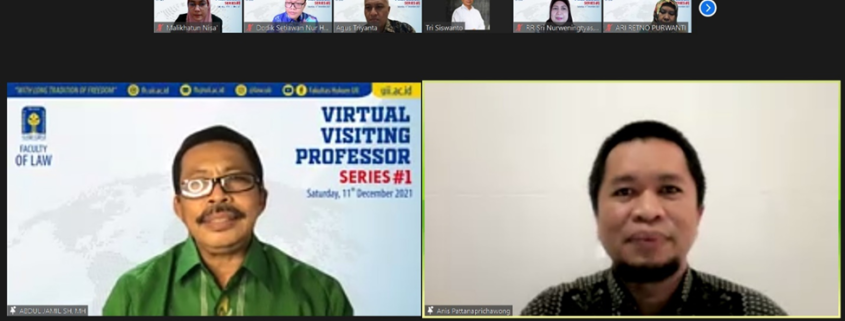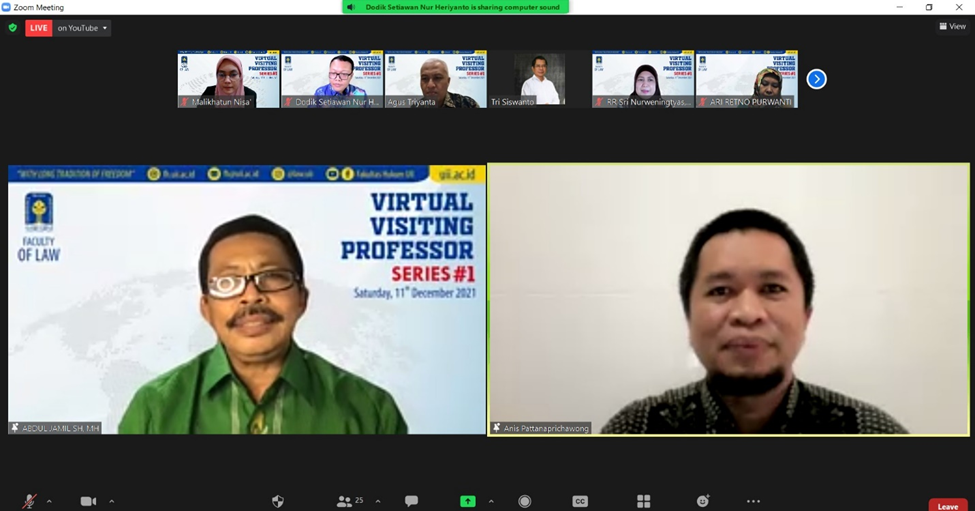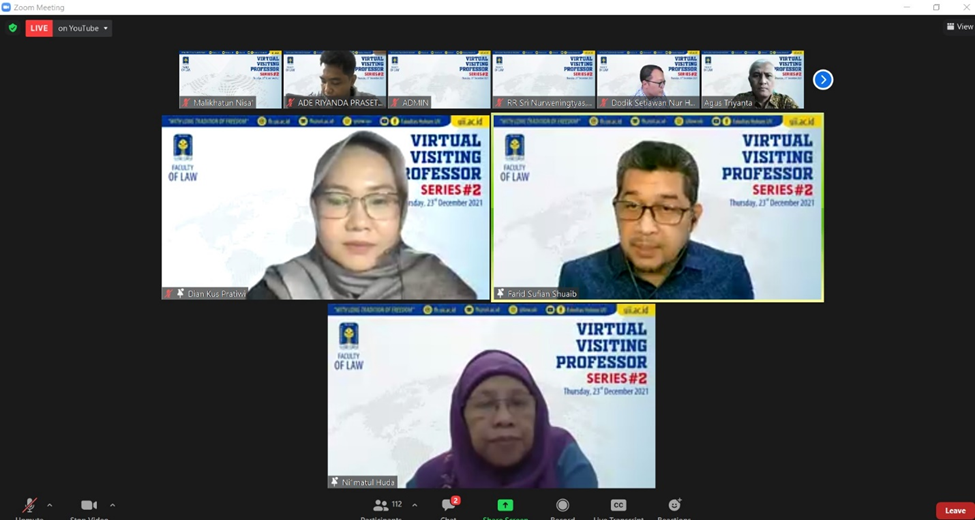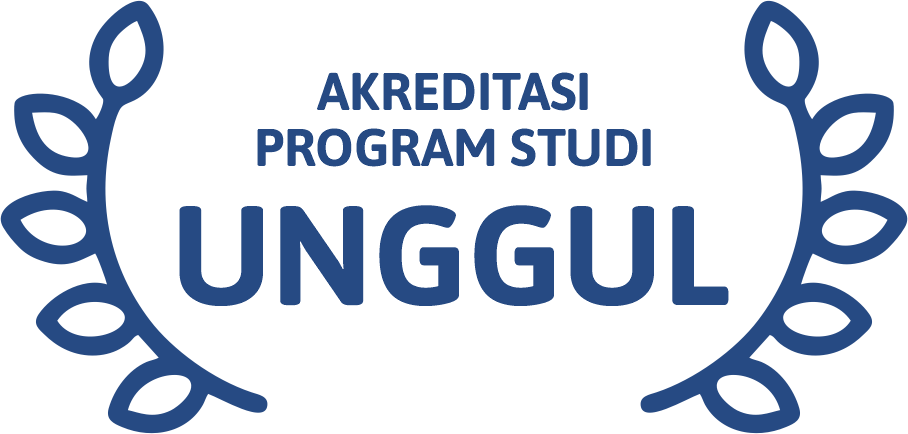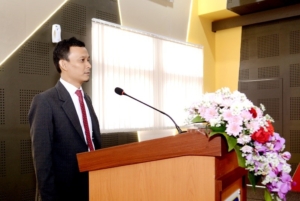
Good faith has become the basis or principle of all law systems. However, in intellectual property law, there are differences in the juridical regulation of good faith. So, there is a need for further study regarding the placement and use of the concept of good faith in acquiring and protecting intellectual rights.
The Doctoral Study Program of Law (PSHPD), Faculty of Law, Universitas Islam Indonesia, again held a public defense examination in the Audiovisual Room, Floor 4, Faculty of Law, UII, on (13/12). Doctoral candidate M. Zulfa Aulia succeeded in obtaining a doctorate by defending his dissertation entitled “The Normativity of Legal Principles in Legal Regulations and Court Decisions: Study of the Existence and Actualization of Good Faith in Intellectual Property Law.”
The doctoral candidate, M. Zulfa Aulia, in his dissertation, highlights three main points as follows: First, although good faith is only made explicit in trademark law regulations, in judicial reality, the use of good faith is determined by its relevance. Good faith is relevant to preventing and canceling the registration of dishonestly intelectual right. Second, judicial reality also shows that good faith does not only apply to trademark law regulations but also to copyrights and patents. In reality, parties, including judges, use good faith as a legal argument to strengthen accusations, defenses, or decisions that specific intellectual right do not meet the requirements for obtaining rights and should not be registered. Third, it is necessary to accommodate the principle of good faith in intellectual property law regulations through behavioral provisions, especially regarding the conditions for acquiring rights. Then, to make good faith explicit in regulations, a significant test in judicial practice, the formation pattern of national legal regulations, and the abstraction of their formulation and placement are needed.

On this occasion, the public defence examination session was chaired by the Chair of the PSHPD, Prof. Dr. M. Syamsudin, S.H., M.H., with members consisting of Promotor, Prof. M. Hawin, S.H., LL.M., Ph.D., Co-Promotor 1, Prof. Nandang Sutrisno, S.H., LL.M., M.Hum., Ph.D., Co-Promotor 2, Prof. Dr. Shidarta, S.H., M.Hum., with examiners: Prof. Dr. Budi Agus Riswandi, S.H., M.Hum., Prof. Dr. Sri Wartini, S.H., M.Hum., Ph.D., Hayyan Ulhaq, S.H., LL.M., Ph.D.

After presenting her dissertation and answering questions the board of examiners asked, M. Zulfa Aulia was successfully appointed Doctor of Law. Dr. M. Zulfa Aulia, S.H., M.H. officially holds the 169th doctoral degree from PSHPD FH UII. Promotor Prof. M. Hawin, S.H., LL.M., Ph.D., congratulated and advised them to carry out the Prophet’s orders, to be always humble, always share knowledge with others, and not hide the knowledge they have.
